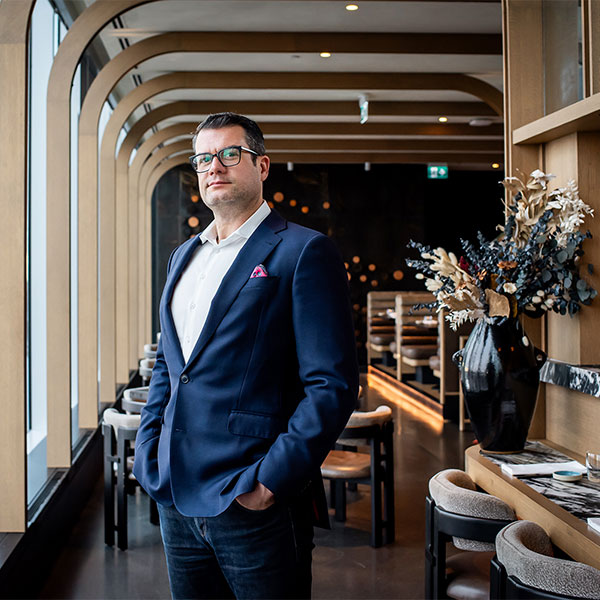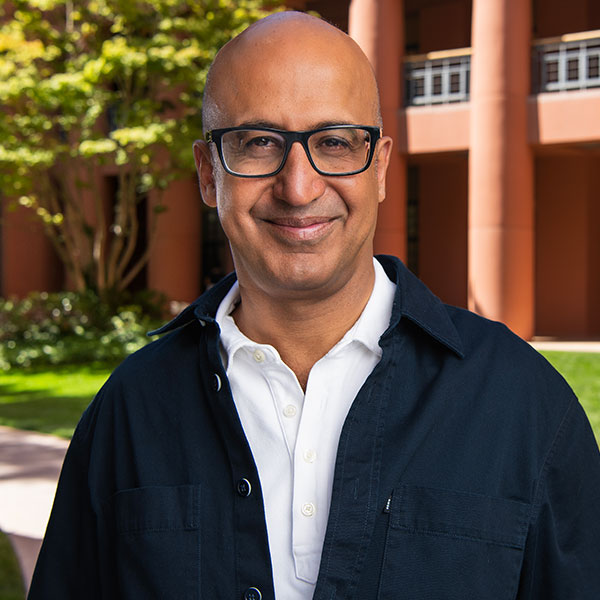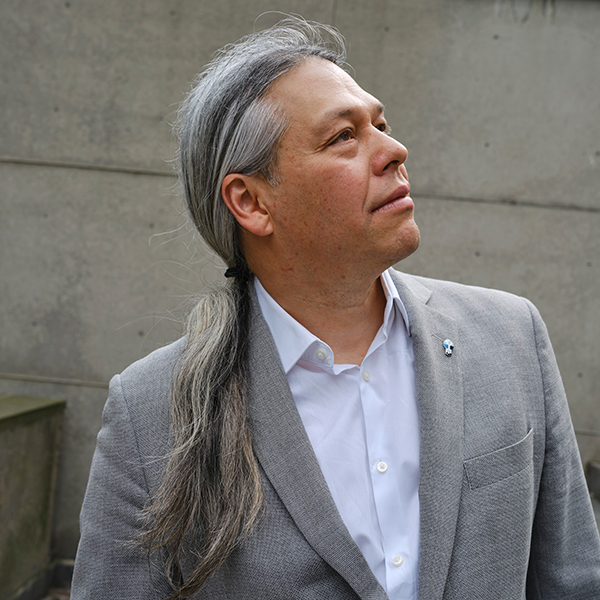Brian Fetherstonhaugh, BCom’79, has been the CEO of OgilvyOne Worldwide, the global digital marketing branch of communications giant Ogilvy & Mather, since 2005. His firm employs more than 5,500 people in 40 countries and it works with some of the world’s best-known companies. It regularly wins awards at the Cannes Lions Festival, the international competition for advertising.
In short, he is a very big deal in the world of marketing.
But to get there, he had to make peace with a painful truth – he was never going to be able to make his mortgage payments as a harmonica player.
“I think one of the worst pieces of advice you can give to a young person is, ‘Do what you love,’” says Fetherstonhaugh.
“There is certainly truth to it – you absolutely should do something you enjoy – but it’s only part of the equation. Are you good at it? Is it something the world values? I love playing harmonica, but there are two reasons I don’t do it for a living. One, I’m not quite good enough, and two, the world doesn’t care. The best harmonica player on the planet probably scrambles from gig to gig just to get by.”
Fetherstonhaugh has a lot to say on the subject of career building (when you have more than 5,500 employees, you find yourself being asked for career advice frequently). His recent book, The Long View: Career Strategies to Start Strong, Reach High, and Go Far (it expands on a popular article he wrote for Fast Company), focuses on strategies for building and maintaining a successful career.
One piece of advice for millennials? Don’t be in such a hurry.
“The big mistake that [young people] often make is they don’t appreciate the timeline. A career is 45 years. They don’t realize at the beginning of the marathon that it is a marathon. They run around and exhaust themselves and they don’t have a plan.”
Fetherstonhaugh counsels twentysomethings to take the time to figure out what they’re good at. Don’t worry about stumbling – as long as you learn something in the process. Develop skills. Try things out. Make connections.
“If you do something for a year after you graduate and it doesn’t work out, it’s not a catastrophe,” says Fetherstonhaugh. “Take the pressure off. You still have 97.8 per cent of your career left. We have more years of career after the age of 40 than before. Almost nobody appreciates that.
“Here’s some quick career math – what percentage of your personal wealth do you accumulate after your 40th birthday?,” he asks. “In the U.S., the answer is 88 per cent. All the money is in the second half. Position yourself now for the juicy, joyful things in the second half.”
And if you’re firmly entrenched in your job with years of experience behind you, well, Fetherstonhaugh says don’t get too relaxed. Institutional memory is definitely a valuable thing – but only if you can apply it to the here and now.
“If I ever start telling war stories about how things used to be 20 years ago, shoot me,” says Fetherstonhaugh. “I would be disruptive to the value of the advice we give to our clients. When I wake up in the morning, I ask myself, ‘What am I going to do today to stay fresh.’”
He has two principal strategies. One is to hang out with young people.
“I’m the executive sponsor of the Young Professional Network at Ogilvy. We started with seven people and now we have 500. We do assignments together. We pitch [to clients] together. Yes, I’m giving out advice, but it isn’t one-way. There is reverse-mentoring too. I’m learning from them.
“The other thing I do is I promise to make speeches. A month from today, I’ll be talking about mobile commerce. It’s a relevant, future-oriented topic and I’ll have to do my homework. I force myself to develop credible, fact-based expertise.”
Fetherstonhaugh spoke at a public event at McGill last month as part of the Marcel Desautels Integrated Management Symposium Series. Chances are he didn’t have to do much homework since it was on a subject that’s close to his heart – authenticity and deception in communications and advertising.
“I think fake news is particularly pernicious,” says Fetherstonhaugh. “It’s making stuff up and it makes you want to engage with my content so that I, the publisher, can make money off your eyeballs. We should always have a healthy amount of skepticism about things, but this is creating an unhealthy level of skepticism where people are literally throwing their hands up and saying, ‘I don’t believe in anything anymore.’
“Every day my father read The Gazette and La Presse and Le Devoir and his opinion was based on triangulating multiple points of view. That comes back to something I point to in the book as a valuable transportable skill – the ability to corroborate and identify authoritative sources of information. I hope that McGill is teaching that as a modern survival skill – the ability to discriminate between sources. We need to be equipped to do that, otherwise we’re going to be victims.”
Fetherstonhaugh sees some cause for hope. “There is a movement afoot to certify websites more systematically,” he says. Companies with big advertising budgets are increasingly concerned about the sketchy nature of some of the sites where their ads turn up. “Instead of your ad appearing in 400,000 places, maybe it’s better for it to appear on 5,000 sites that have been certified.”
If it surprises you that a marketing executive would get so worked up about fake news, Fetherstonhaugh says it shouldn’t. “I work with brands, and brands are built on trust and confidence. A brand is a promise that is consistently delivered.” And you better keep that promise, he says.
“A lot of what we try to bring out in the counsel that we give to our clients is to understand, it’s not just product performance that matters, but [also] the beliefs that are underlying a brand. Your behaviour must stand up to your promise.”
He points to a recent Audi ad during the Super Bowl that championed gender pay equality. “Within seconds, hundreds of thousands of people had checked out audi.com and noticed that there were no women on Audi’s management board.” Audi’s own track record on gender equity soon came under increased scrutiny.
“You can no longer hide behind the notion that, ‘I can say this and no one will ever find out,’” says Fetherstonhaugh. “Of course they’ll find out. There are no secrets anymore. Everything is discoverable. It actually forces us in a healthy way to be who we say we are, to do what we say we’ll be doing. The people who do that will have incredibly powerful brands, because in a world of complexity, we want familiar things that are what they say they are.”


